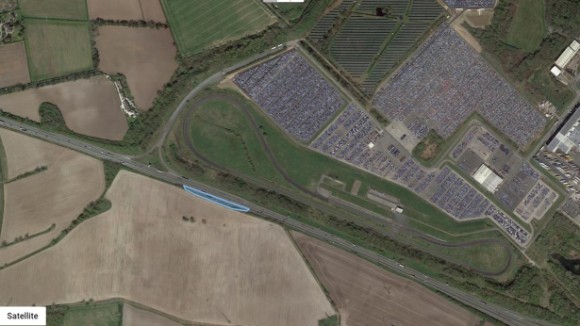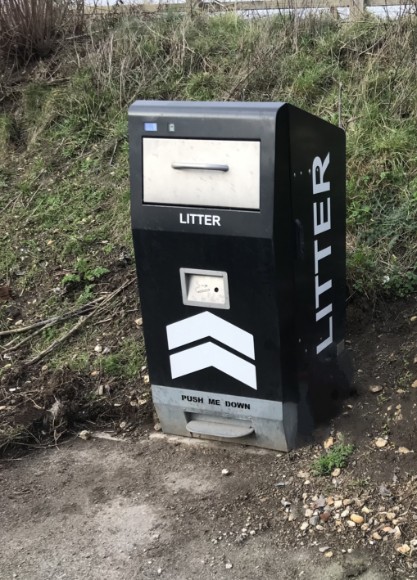24 tonnes of litter collected across the South West
By Guest author 21st Mar 2024


More than 24 tonnes of rubbish were collected from motorways and A-roads in the South West over the past 12 months.
Since April 2023, a total of 6,000 bags of litter and rubbish were collected as well as large items such as bed mattresses, electric cables and carpets along busy routes between Gloucestershire and Cornwall.
The latest litter pick took place last month (February) on the M5, where teams picked up 500 bags of litter.
Particular hotspot areas in the region include the M32 J2-M4, M5 Avonmouth slip roads, and M5 Michaelwood Services, but National Highways has implemented enhanced monitoring of these sections to ensure they are regularly cleared.
Andrew Gale, Service Delivery Manager for the South West, said: "It is infuriating to see how much litter has been tossed onto the roadside.
"Roadside rubbish isn't just unsightly, it is a danger to the environment, wildlife and drivers using our roads. It's also a hazard for the people who have to pick up litter from the roadside because of the few individuals who feel it is ok to make others clean up after them.
"Overall, the litter picture on our roads is improving from previous years, but we recognise more is still needed. That's why it's great that we have launched a new litter campaign to help raise awareness."
The news coincides with this year's Great British Spring Clean, in which the company has announced two new innovative litter trials to help reduce the amount of litter on the network: 'geo-fencing' laybys and solar-powered compactor bins.

National Highways has trialled messaging to reduce motorway littering using 'geofencing' to send messages to drivers entering laybys where littering is prevalent, urging them to use bins or take their litter home.
Geofencing is the use of GPS (Global Positioning System) technology to create a 'virtual geographic boundary', enabling software to trigger a response when a mobile device enters or leaves a particular area.
Around 100 laybys on the A50 in Derby, and the A180 en route to Immingham Port were 'geofenced' for the trial which lasted three months. Messages informing drivers to 'Bin Your Litter' or 'Take your litter home' were delivered to drivers who stopped in these laybys. The trial was able to identify the two most heavily used laybys - those which attracted the most read messages. As of 31 January 2024, a total of 245,021 messages were viewed. This intelligence will allow National Highways to develop strategies to better tackle litter at those locations.
Solar-powered compactor bins have been trialled since October 2023 in a layby on the A180. Due to the volume of litter being placed into the bins, the bins were regularly overflowing. Installing compactor bins, which crush the litter, has addressed the issue.

This has enabled the local authority to reduce their emptying regime from six days a week to two, saving time, money and improving road worker safety.
The company also makes use of digital variable messaging signs (VMS) in selected regions to display roadside messages reminding road users to dispose of their litter responsibly.
Freda Rashdi, Head of Customer Journeys for National Highways, said: "We are trialling a range of innovative tech-based solutions to tackle littering on our network, as part of our ongoing campaign to tackle this dreadful social problem.
The Great British Spring Clean for its ninth year and we are staging litter picks across the country. We value Keep Britain Tidy's commitment to eliminating litter for the last 70 years.
"We're also exploring ways to reduce the contractor equipment debris left behind after roadworks – which our customers regularly highlight to us as an eyesore.
"The simple fact is that if litter wasn't dropped in the first place it wouldn't need to be picked up. So, this is an opportunity to remind people that they too can make a difference simply by saving litter for the bin."
Allison Ogden-Newton, Chief Executive of environmental charity Keep Britain Tidy, said: "Drivers mindlessly tossing their rubbish out of their windows is a blight on our country and does untold harm to our wildlife, as well as making our country looked dirty and unloved.
"We welcome National Highways stepping up to the challenge of tackling this environmental vandalism with their new initiatives and we look forward to seeing the results and, if successful, their roll-out across the nation's road network.
"In the meantime, it is great to have their support for this year's Great British Spring Clean. Thousands of volunteers will clear more than 350,000 bags of rubbish from our streets, parks and beaches during the campaign but they cannot clean up the motorway slip roads and central reservations that are so often covered with litter so it is great that National Highways will be doing their own litter-picks."
Last month, National Highways launched its new litter campaign, teaming up with the RSPCA to urge road users to 'Lend a Paw – bin your litter'. The RSPCA revealed it had received over 10,000 reports of animals found injured, trapped or dead from discarded litter in the last 3 years – nearly 10 per day. The campaign is featured on radio adverts, roadside billboards, posters at motorway service areas and petrol stations, and on social media.
National Highways complies with its duties under the Environmental Protection Act and is responsible for collecting litter from England's motorways and a small number of A-roads. It works closely with partners, including local authorities, who collect litter on most of the country's A-roads.
CHECK OUT OUR Jobs Section HERE!
midsomernorton vacancies updated hourly!
Click here to see more: midsomernorton jobs
Share:




